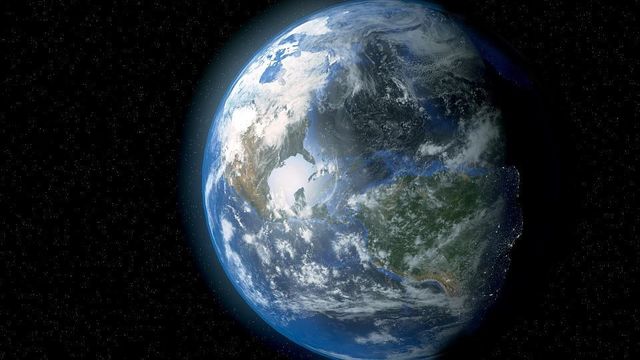Use your dishwasher: 6 super easy ways to help the planet on Earth Day
Earth Day is April 22.
Frank Leibfarth, an associate chemistry professor at the University of North Carolina at Chapel Hill, shared six simple things families can do to reduce their environmental impact.
With his team at UNC, Leibfarth is studying ways to make more sustainable, long-lasting plastics. Like many of us, he wants to make a difference at home, too.
"Even in my personal life I want to do the little things correctly to be more sustainable," Leibfarth said. "I think everybody by changing small habits in their daily life can reduce their environmental footprint."
If possible, eat and shop in person
During the COVID-19 pandemic, takeout and delivery became a staple, "but this really puts a big burden on the environment," Leibfarth explained.
Before using DoorDash or ordering items on Amazon, consider this: Packaging, like cardboard boxes or to-go containers, plus the gas used to transport these items to your home, really adds up.
"You really significantly diminish that if you just go to Target or Walmart or your local restaurant and do those things in person," Leibfarth said.
Use your dishwasher
Dishwashers use about 80% less water than washing your dishes by hand.
An average dishwasher uses about 10 liters of water. But washing the same number of dishes by hand could use more than 50 liters of water.

"It's a really great way to save a lot of water," Leibfarth said.
Plant natural grass or flowers
This advice is for people with yards. If possible, plant flowers or grasses that are native to North Carolina.
"If we plant those natural grasses or flowers we limit the need to fertilize," Leibfarth explained.
Most fertilizer contains ammonia. According to Leibfarth, the process to make ammonia consumes about 2% of the world's energy supply.
"The more we can plant native grasses and lower our use of synthetic fertilizer, the less energy we're using," Leibfarth added.
North Carolina State University has a guide to native plants and grasses.
Recycle, don't 'wishcycle'
Wishcycling is the idea that it feels really good to put things into the recycling bin. Sometimes, it feels so good to recycle that we recycle the wrong things.
"But if you're not recycling the correct things or if you're recycling dirty things, that is actually much worse for the recycling center, because it's hard to separate those things," Leibfarth said.
An example would be an empty peanut butter jar. It's hard to clean all the peanut butter out, so it's better to throw it away if the inside is dirty.
You can clean the items, Leibarth said, but really dirty containers will require hot water and electricity to clean, so very dirty things should just be thrown away.
Pizza boxes, which can be covered in grease, should always go in the trash.
Use a Sharpie at parties
At large parties, get a Sharpie and make sure everyone writes their name on their disposable cup.
"This seems like a little thing," Leibfarth said, but if everyone has a red Solo cup at a party and drinks become intermingled, it can be difficult to track down your own cup.
"Getting a new cup adds to a lot of plastic waste that doesn't need to be there," Leibfarth said.
Better yet, at small parties, consider using glassware -- and then wash it in the dishwasher.
Buy high quality clothing; avoid 'fast fashion'
For some, this might be the trickiest change to make.
Leibfarth recommends spending a little more money upfront and buying high quality clothing you can wear for years. Avoid the idea of "fast fashion," or buying cheaper clothes that wear out after a few washes, he said, because fast fashion is one of the most harmful things for the environment.
"Most of the microplastics getting into our water and food are from washing synthetic fibers from clothing," Leibfarth said.
Also, think about the workers who make those clothes. If you're willing to spend a little more for something of higher quality, you're supporting better working conditions for employees.
More content like this
- What to recycle and what not to recycle in the Triangle
- Cary gift/home shop helps families practice sustainability
- Easy ways to celebrate Earth Day











